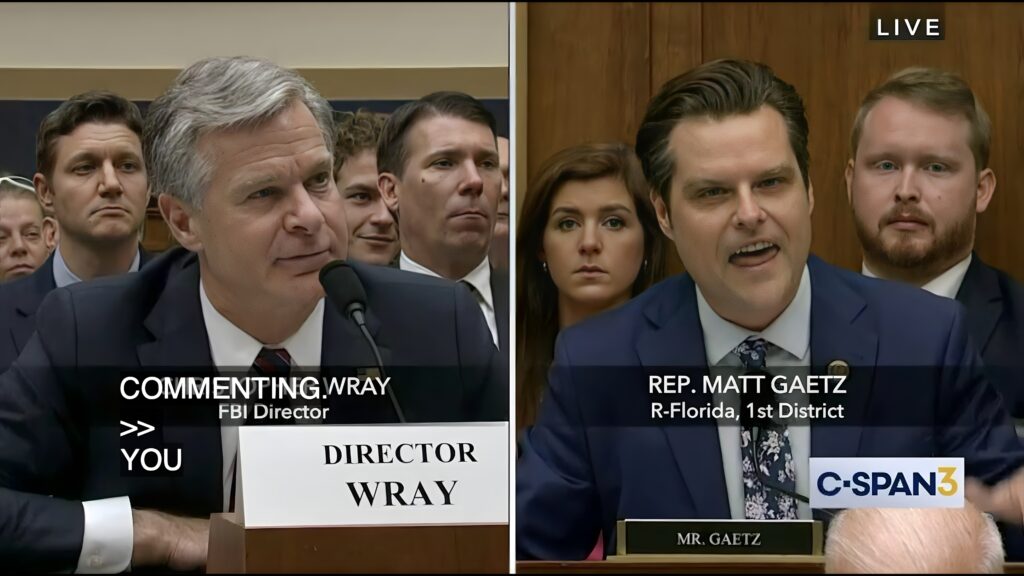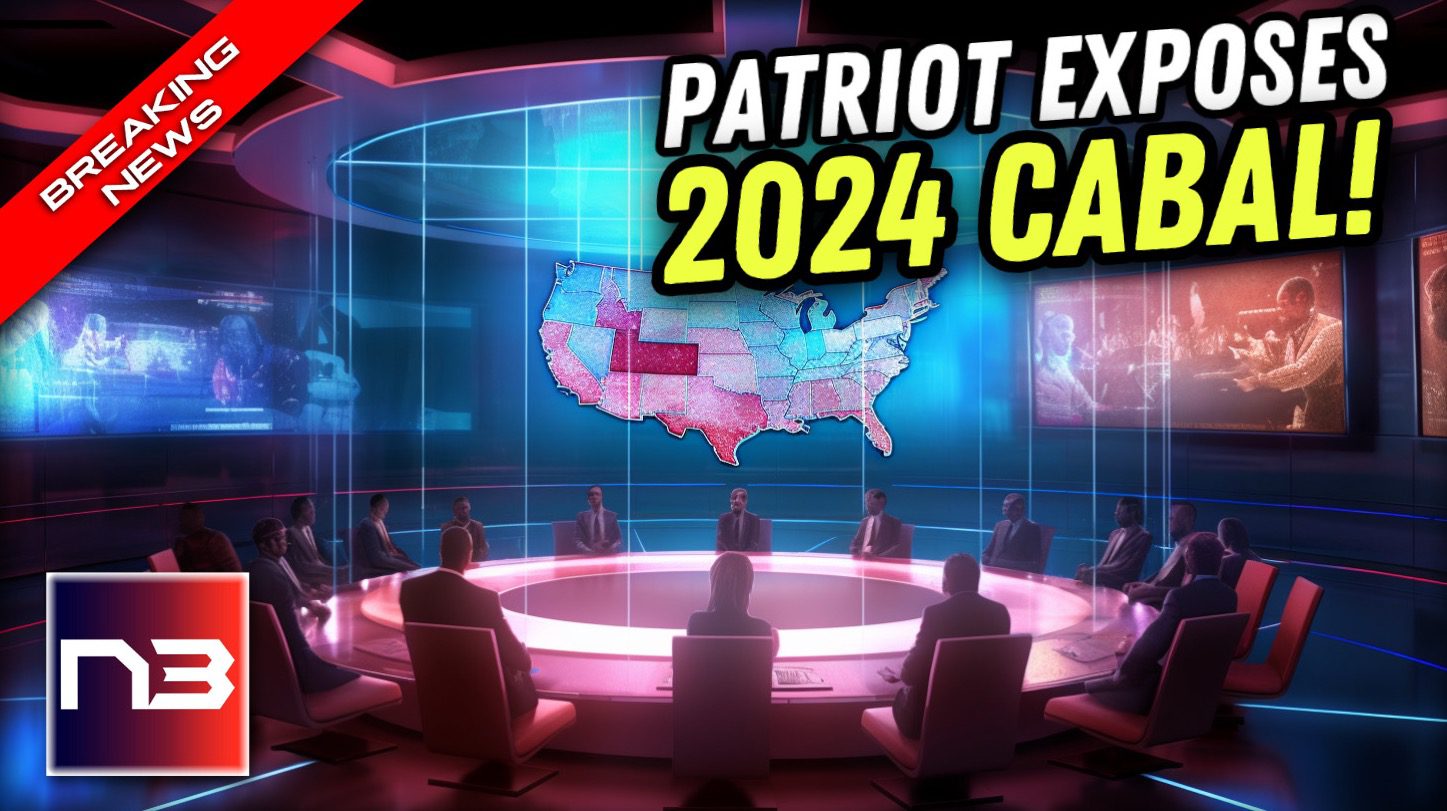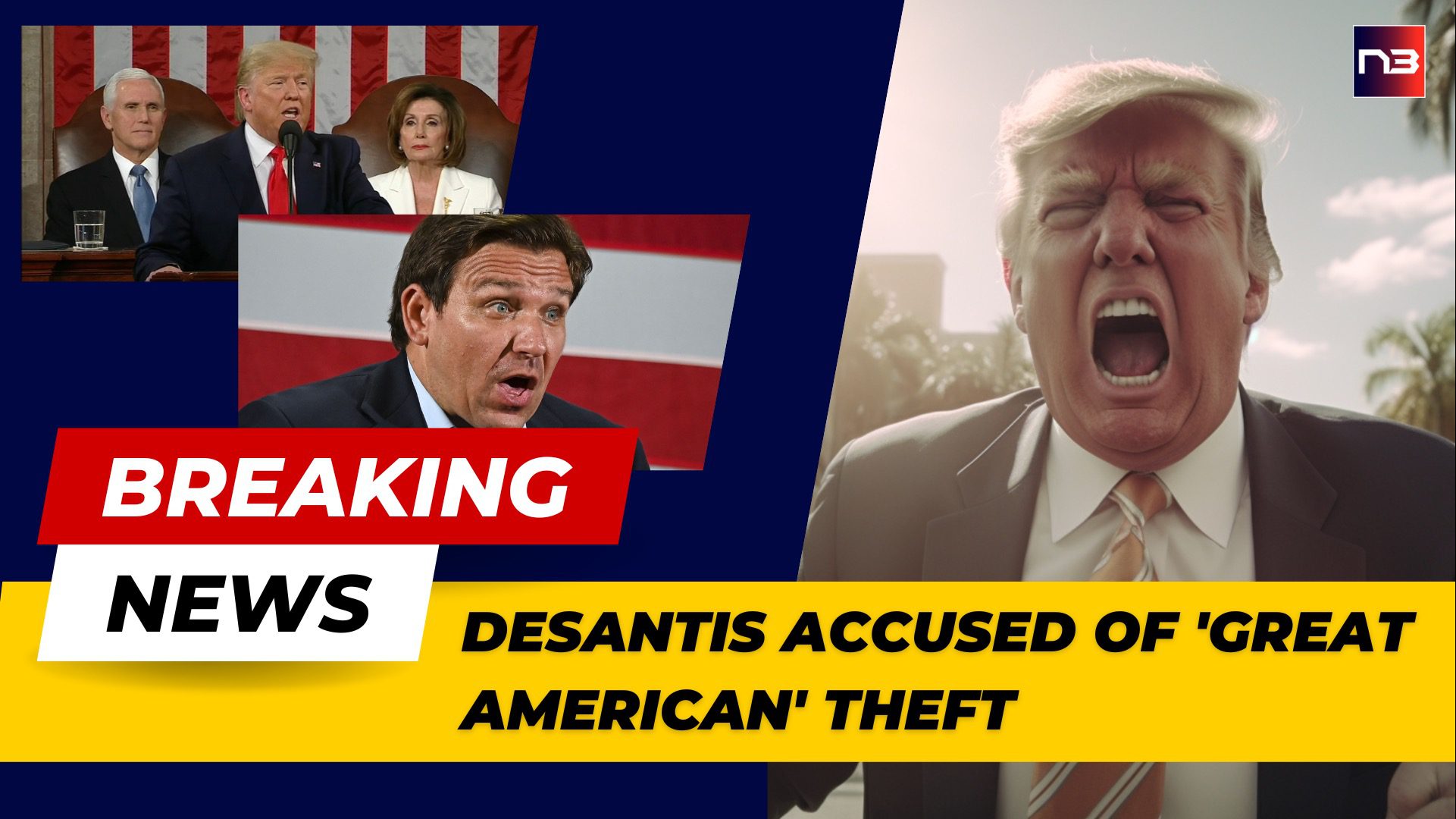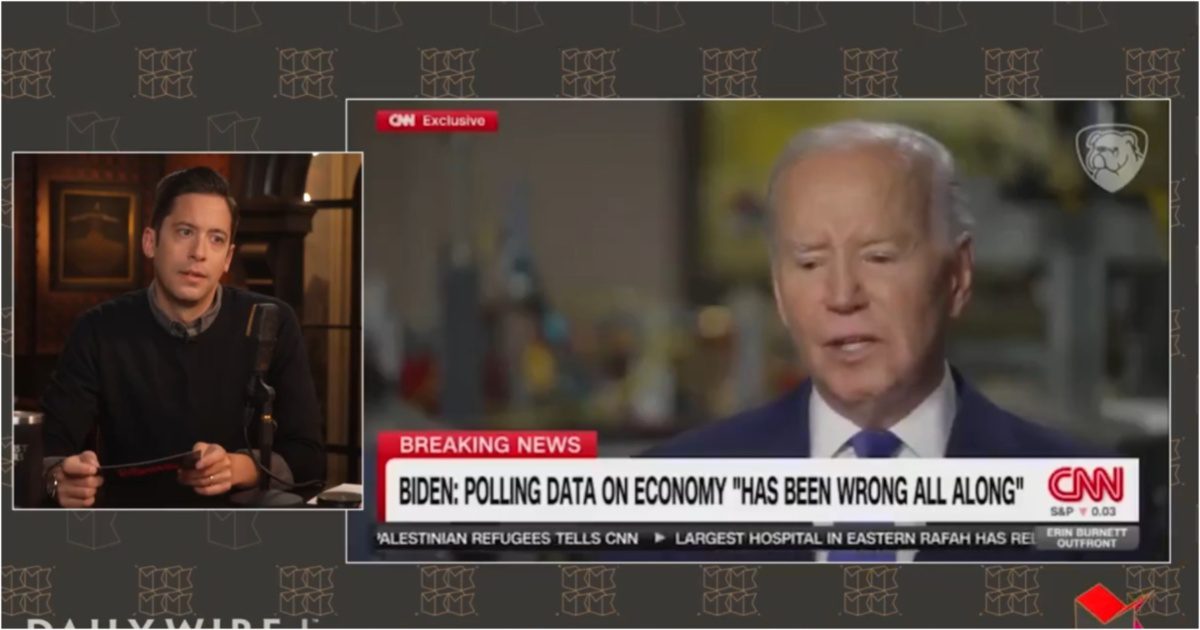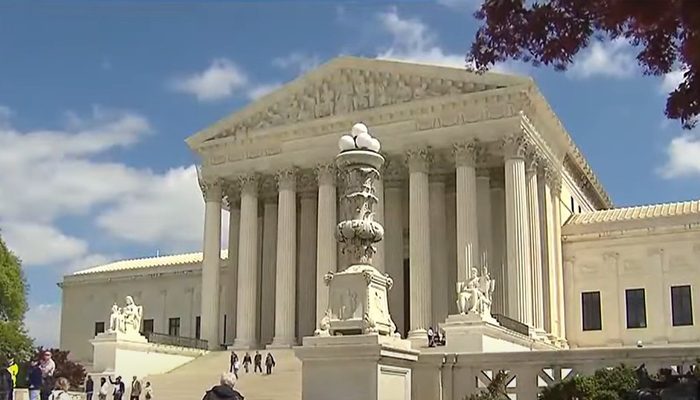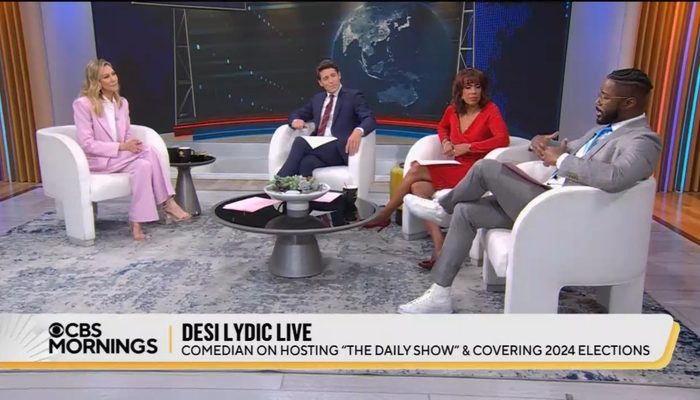In a contentious House Judiciary Committee hearing, Representative Matt Gaetz stunned observers by confronting FBI Director Christopher Wray with a smoking gun—an incriminating message implying a ‘shakedown’ involving the Bidens. With a profound lack of curiosity, Wray evaded a straightforward response, raising serious doubts about the FBI’s neutrality. Gaetz’s blunt question, ‘Are you protecting the Bidens?’, echoes across the nation. As online reactions start to flood in, it’s clear that this confrontation is more than just political theater—it could expose the layers of obfuscation woven around Washington. Brace yourselves as we delve deeper into this high-stakes face-off.
The Judiciary Committee hearing was anything but ordinary today, as Rep. Matt Gaetz took the floor to challenge FBI Director Christopher Wray. He began by highlighting a cryptic message from the Bidens that eerily resembled a ‘shakedown’. Gaetz, acting in his capacity as a fearless custodian of libertarian values, promptly questioned the FBI Director’s notable lack of interest.
When pressed, Wray responded with apparent indifference, adding fuel to the fire of Gaetz’s allegations. Wray’s evasion of a clear-cut response drew attention and sparked speculation about the FBI’s role in shielding the Bidens from investigation. His remark, “The FBI does not protect anybody politically,” was perceived as hollow amidst the incriminating evidence. Gaetz was quick to counter this, challenging Wray’s lack of curiosity about the alleged Biden shakedown, terming it ‘suspicious’.
As the hearing progressed, Gaetz refused to back down. His relentless questioning laid bare the possibility of Wray’s unwillingness to look into the Bidens’ supposed shady dealings. Gaetz’s scathing remarks suggested a perceived hypocrisy within the FBI ranks and their alleged protection of political figures. His fiery rhetoric lit up the committee hearing and set the online world ablaze.
The online reactions mirrored Gaetz’s own sentiments. Comments ranged from stark condemnation of Wray’s demeanor to spirited support for Gaetz’s audacious questioning. One user called Wray a “slime” who had corrupted the FBI, while another, referring to the election controversy, expressed disillusionment with the entire government setup. Many hailed Gaetz as a brave voice fighting against corruption, offering him their prayers and admiration.
Amidst these fervent expressions of support for Gaetz, there was a recurring sentiment: a sense of despair over the state of the country’s institutions and a frustration with the perceived political posturing. Commenters drew parallels between the FBI’s conduct and that of other controversial institutions, and called for drastic measures, including military intervention and more drastic, revolutionary acts.
Gaetz’s relentless pursuit of transparency also triggered some cynical responses. Several commenters expressed their disillusionment, fearing that this political drama would merely amount to a soap opera, with no significant repercussions for those involved. They questioned whether the Republican Party, despite its newfound evidence and public support, would be able to leverage this controversy effectively.
Yet, for all the skepticism, the overwhelming sentiment was one of admiration for Gaetz’s willingness to confront Wray and demand transparency. His bravery in challenging Wray’s seeming lack of curiosity about the alleged Biden shakedown stirred widespread support. His outspokenness against what he perceives as institutional protectionism drew appreciation from supporters who lauded his courage.
This online discourse is a stark reflection of the pervasive cynicism towards Washington’s institutional establishment. Gaetz’s confrontation with Wray is viewed as a glimmer of hope in a perceived landscape of systemic corruption. It exemplifies the libertarian ethos of holding government institutions accountable, a principle deeply ingrained in Gaetz’s supporters.
What this incident underscores is a growing demand for transparency, accountability, and a deep-seated disdain for perceived institutional protectionism. The interaction between Gaetz and Wray was more than a mere political skirmish—it was a fight for transparency and justice against a seemingly unresponsive system. The vast majority of online reactions echoed this sentiment, indicative of a growing distrust of establishments perceived to protect their own.
The grilling of Christopher Wray was, in many ways, a clarion call for accountability, a demand for answers. Rep. Gaetz’s direct approach—questioning, prodding, and refusing to be placated by non-answers—captured the spirit of libertarianism. As the online reactions poured in, it was clear that Gaetz’s determination to hold the FBI Director accountable had resonated with a considerable audience.
The House Judiciary Committee hearing, highlighted by Gaetz’s uncompromising questioning of Wray, revealed more than just possible political intrigue—it exposed the deep-seated mistrust citizens have towards their institutions. The ‘reveal’ was Wray’s nonchalant evasion and the question it sparked: ‘Are you protecting the Bidens?’ While this investigation unfolds, the nation watches, questions, and doubts. The call for transparency grows louder. As our institutions remain under scrutiny, the public will continue to question, to demand answers, and to laud brave voices like Gaetz’s that dare to challenge authority and demand accountability. Let this discourse serve as a reminder—our nation’s watchers are watched too.
